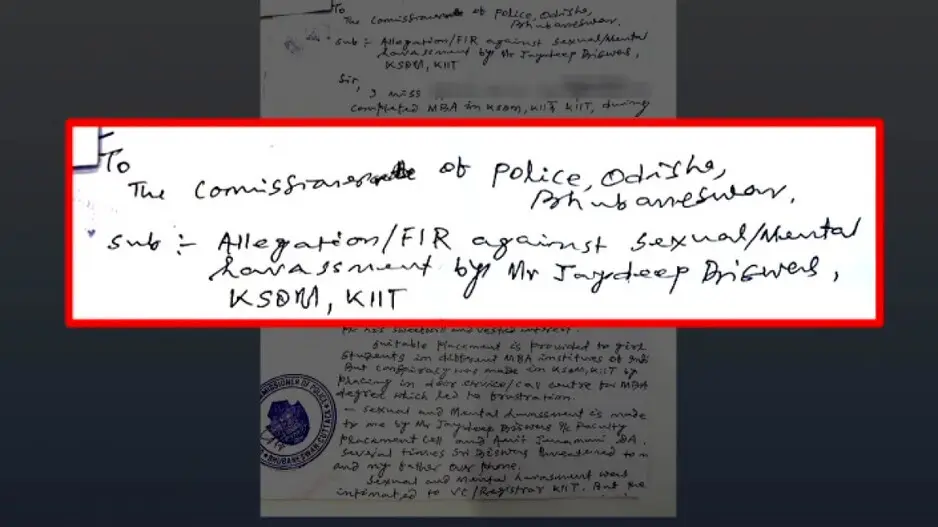/odishatv/media/post_attachments/uploadimage/library/16_9/16_9_0/recent_photo_1740488132.webp)
Berhampur University Vice Chancellor Gitanjali Das
Berhampur University Vice Chancellor Gitanjali Das has allegedly fallen victim to a ‘digital arrest’ fraud and reportedly lost Rs 14 lakh.
With Berhampur Superintendent of Police reportedly confirming the incident on Tuesday, a case has now been taken up by the cyber police department for investigation.
This occurrence highlights the ongoing risks posed by cybercriminals, especially towards academic institutions and their leadership.
As per reports, the cyber fraudsters told Das over the phone that they were the employees of ED and a case is running against Das in the Supreme Court. They threatened Das and she was under digital arrest for four days. The fraudsters demanded Rs 14 lakh from her and Das gave them the amount. After taking the money, the phones of the fraudsters were found switched off.
Later, Das came to know about the incident and lodged a complaint at Berhampur cyber police station. An investigation into the incident has been launched.
Must Read: Bhubaneswar scientist falls prey to digital arrest, looses Rs 1 crore; 2 arrested
“The fraudsters have looted Rs 14 lakh from Das through digital arrest. Based on her complaint, an investigation into the incident has been launched,” said Berhampur SP Saravana Vivek M.
Impact and response
Incidents such as this underscore the need for rigorous cybersecurity infrastructure, especially in academic settings. The immediate response of reporting to the cyber police will assist in a comprehensive investigation. A broader awareness about cybersecurity protocols remains essential as a preventative measure across various sectors in Odisha.
What is digital arrest?
Digital arrests refer to a type of sophisticated cyber fraud where cyber-criminals impersonate law enforcement officials or other authorities. The targets of these fraudsters are often contacted out of the blue usually on instant messaging apps like WhatsApp and informed that their bank accounts, digital identities, or other online assets have been compromised. Criminals play on the victims’ fear by threatening them with imminent arrest, legal consequences, or public humiliation if they don’t cooperate with a series of urgent demands.
Fraudsters behind digital arrests are masters of psychological manipulation. They understand that fear and urgency are powerful motivators that can cloud judgment and lead people to act against their best interests. By creating a fabricated sense of crisis, they pressure victims into making hasty decisions without the chance for rational thought or verification.
Demand for enhanced rail links to Jagatsinghpur gains momentum

KIIT university ex-student alleges ‘sexual harassment’ in the name of placement

Jajpur, Bhadrak villagers in limbo over incomplete bridge projects

Maha Shivratri: 40 platoons of police force to be deployed at Lingaraj temple in Bhubaneswar

/odishatv/media/agency_attachments/2025/07/18/2025-07-18t114635091z-640x480-otv-eng-sukant-rout-1-2025-07-18-17-16-35.png)

/odishatv/media/media_files/2025/09/22/advertise-with-us-2025-09-22-12-54-26.jpeg)
